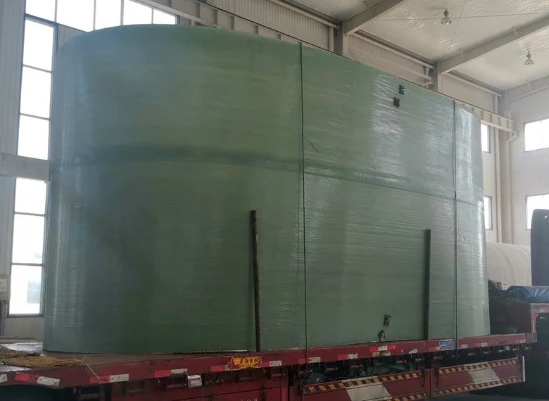
-
 Afrikaans
Afrikaans -
 Albanian
Albanian -
 Amharic
Amharic -
 Arabic
Arabic -
 Armenian
Armenian -
 Azerbaijani
Azerbaijani -
 Basque
Basque -
 Belarusian
Belarusian -
 Bengali
Bengali -
 Bosnian
Bosnian -
 Bulgarian
Bulgarian -
 Catalan
Catalan -
 Cebuano
Cebuano -
 China
China -
 China (Taiwan)
China (Taiwan) -
 Corsican
Corsican -
 Croatian
Croatian -
 Czech
Czech -
 Danish
Danish -
 Dutch
Dutch -
 English
English -
 Esperanto
Esperanto -
 Estonian
Estonian -
 Finnish
Finnish -
 French
French -
 Frisian
Frisian -
 Galician
Galician -
 Georgian
Georgian -
 German
German -
 Greek
Greek -
 Gujarati
Gujarati -
 Haitian Creole
Haitian Creole -
 hausa
hausa -
 hawaiian
hawaiian -
 Hebrew
Hebrew -
 Hindi
Hindi -
 Miao
Miao -
 Hungarian
Hungarian -
 Icelandic
Icelandic -
 igbo
igbo -
 Indonesian
Indonesian -
 irish
irish -
 Italian
Italian -
 Japanese
Japanese -
 Javanese
Javanese -
 Kannada
Kannada -
 kazakh
kazakh -
 Khmer
Khmer -
 Rwandese
Rwandese -
 Korean
Korean -
 Kurdish
Kurdish -
 Kyrgyz
Kyrgyz -
 Lao
Lao -
 Latin
Latin -
 Latvian
Latvian -
 Lithuanian
Lithuanian -
 Luxembourgish
Luxembourgish -
 Macedonian
Macedonian -
 Malgashi
Malgashi -
 Malay
Malay -
 Malayalam
Malayalam -
 Maltese
Maltese -
 Maori
Maori -
 Marathi
Marathi -
 Mongolian
Mongolian -
 Myanmar
Myanmar -
 Nepali
Nepali -
 Norwegian
Norwegian -
 Norwegian
Norwegian -
 Occitan
Occitan -
 Pashto
Pashto -
 Persian
Persian -
 Polish
Polish -
 Portuguese
Portuguese -
 Punjabi
Punjabi -
 Romanian
Romanian -
 Russian
Russian -
 Samoan
Samoan -
 Scottish Gaelic
Scottish Gaelic -
 Serbian
Serbian -
 Sesotho
Sesotho -
 Shona
Shona -
 Sindhi
Sindhi -
 Sinhala
Sinhala -
 Slovak
Slovak -
 Slovenian
Slovenian -
 Somali
Somali -
 Spanish
Spanish -
 Sundanese
Sundanese -
 Swahili
Swahili -
 Swedish
Swedish -
 Tagalog
Tagalog -
 Tajik
Tajik -
 Tamil
Tamil -
 Tatar
Tatar -
 Telugu
Telugu -
 Thai
Thai -
 Turkish
Turkish -
 Turkmen
Turkmen -
 Ukrainian
Ukrainian -
 Urdu
Urdu -
 Uighur
Uighur -
 Uzbek
Uzbek -
 Vietnamese
Vietnamese -
 Welsh
Welsh -
 Bantu
Bantu -
 Yiddish
Yiddish -
 Yoruba
Yoruba -
 Zulu
Zulu
Operational Analysis of Jackhammer Drilling Rods in Industrial Applications
The Impact of Jackhammer Drilling Rod in Operation
Jackhammer drilling rods are essential components in the realm of construction and mining, particularly in tasks requiring the penetration of hard surfaces. These robust tools play a significant role in various applications, from breaking concrete in urban development projects to mining operations in remote locations. Understanding their operational dynamics, advantages, and potential challenges is key to appreciating their role in modern engineering.
Broadly speaking, a jackhammer consists of a drill bit and a series of interconnected rods that allow for effective power transmission. The drilling rod serves as the backbone of this system, transmitting the force generated by the jackhammer to the drill bit, enabling it to penetrate tough materials such as asphalt, rock, and mineral deposits. The efficiency of the drilling process is directly influenced by the quality, design, and material of the drilling rod.
Operational Mechanism
When a jackhammer is activated, compressed air or electricity powers a piston that drives the drill bit with tremendous force. The drilling rod, often made from tough metals like steel, absorbs and manages this energy, allowing for a consistent drilling action. As the bit penetrates the surface, the rod maintains stability and alignment, which is crucial for achieving precise and effective results. This dynamic creates a cycle of impact and retreat, facilitating the removal of debris and allowing for ongoing drilling operations.
Advantages of Jackhammer Drilling Rods
One of the primary advantages of using jackhammer drilling rods is their ability to deliver high-impact energy in a concentrated manner
. This capability significantly reduces the time and labor required to accomplish tasks. For instance, during the demolition of concrete structures, the effective use of jackhammer rods allows workers to complete the job more swiftly than traditional methods would permit.jackhammer drilling rod in operation

Moreover, modern drilling rods are often engineered to be lightweight yet incredibly strong, which enhances their maneuverability on job sites without sacrificing durability. This characteristic is especially important in vertical drilling applications or when accessing challenging terrains. Additionally, advancements in technology have led to the development of specialized drilling rods that can adapt to various geological conditions, enhancing their versatility in different environments.
Challenges in Operation
Despite their benefits, working with jackhammer drilling rods is not without challenges. Prolonged exposure to vibrations during operation can lead to operator fatigue and discomfort, necessitating the implementation of ergonomic practices and protective equipment. It is vital for operators to understand the risks associated with prolonged use and to take appropriate breaks and precautions to ensure their safety and well-being.
Moreover, the wear and tear on drilling rods can lead to maintenance issues. Regular inspections are essential to identify signs of fatigue, corrosion, or damage, as compromised rods can severely affect drilling performance and safety. Ensuring that the jackhammer components are well-maintained helps prevent downtime and ensures the most efficient operation.
Conclusion
In essence, jackhammer drilling rods are indispensable tools in construction and mining, facilitating the efficient breakup of hard materials. Their design, coupled with advanced technology, enhances their functionality and versatility, making them suitable for a variety of applications. However, it is crucial to remain vigilant about the challenges that come with their use, particularly regarding operator safety and equipment maintenance. As industries continue to evolve, the development and refinement of jackhammer drilling rods will no doubt play a pivotal role in shaping efficient and safe operational practices.









